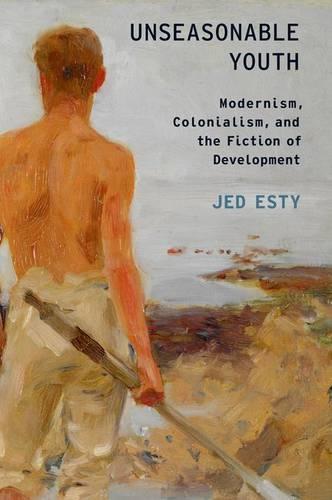Overview
Unseasonable Youth examines a range of modernist-era fictions that cast doubt on the ideology of progress through the figure of stunted or endless adolescence. Novels of youth by Oscar Wilde, Olive Schreiner, Rudyard Kipling, Joseph Conrad, H.G. Wells, James Joyce, Virginia Woolf, Jean Rhys, and Elizabeth Bowen disrupt the inherited conventions of the bildungsroman in order to criticize bourgeois values and to reinvent the biographical plot, but also to explore the contradictions inherent in mainstream developmental discourses of self, nation, and empire. The intertwined tropes of frozen youth and uneven development, as motifs of failed progress, play a crucial role in the emergence of dilatory modernist style and in the reimagination of colonial space at the fin-de-siècle. The genre-bending logic of uneven development - never wholly absent from the coming-of-age novel -- takes on a new and more intense form in modernism as it fixes its broken allegory to the problem of colonial development. In novels of unseasonable youth, the nineteenth-century idea of world progress comes up against stubborn signs of underdevelopment and uneven development, just at the same moment that post-Darwinian racial sciences and quasi-Freudian sexological discourses lend greater influence to the idea that certain forms of human difference cannot be mitigated by civilizing or developmental forces. In this historical context, the temporal meaning and social vocation of the bildungsroman undergo a comprehensive shift, as the history of the novel indexes the gradual displacement of historical-progressive thinking by anthropological-structural thinking in the Age of Empire.
Full Product Details
Author: Jed Esty (Associate Professor of English, Associate Professor of English, University of Pennsylvania)
Publisher: Oxford University Press Inc
Imprint: Oxford University Press Inc
Dimensions:
Width: 15.50cm
, Height: 2.30cm
, Length: 23.10cm
Weight: 0.386kg
ISBN: 9780199307234
ISBN 10: 0199307237
Pages: 304
Publication Date: 19 September 2013
Audience:
College/higher education
,
Professional and scholarly
,
Postgraduate, Research & Scholarly
,
Professional & Vocational
Format: Paperback
Publisher's Status: Active
Availability: To order

Stock availability from the supplier is unknown. We will order it for you and ship this item to you once it is received by us.
Reviews
<br> [Esty's] extensive secondary references, awareness of critical trends, and what the series editors right call his 'admirable stylistic panache' are all impressive. Recommended. --CHOICE<p><br> Jed Esty is a fabulous phrase-maker, but his most extraordinary talent is for pattern recognition. There are breath-taking moments of such recognition throughout Unseasonable Youth. Esty is forever uncovering formal patterns that had somehow escaped other observers and always mark interesting changes in the landscape of his genre and period. It will be hard if not impossible for future readers to think of the modernist bildungsroman without also reflecting on his powerful and original argument. --Bruce Robbins, author of Upward Mobility and the Common Good<br><p><br> Unseasonable Youth offers a masterful set of inquiries into the relations among novel theory, empire, fraying national sovereignty, and the sublimations of modernism, and the results are riveting: this is a brilliant, game-changing argument about the literary wages of uneven development. By forcing an expanded reading of the 'frozen youth' of so many of modernism's protagonists, Esty leads us through some of the most patient, illuminating, and theoretically vivid discussions that I've read in years. Brimming with insights on every page, erudite and supple, Unseasonable Youth is a joy to read. Jed Esty has produced a major contribution to the field of modern literary studies. --Janet Lyon, author of Manifestoes: Provocations of the Modern<br><p><br> Powerful in its theoretical engagements, nuanced in its readings of fiction, Unseasonable Youth transforms our understanding of the bildungsroman in the modernist era. In a series of elegant analyses, Esty shows that the progressive developmental narrative associated with both individual and nation in the nineteenth century was not discarded by the twentieth but disenchanted, deformed, and reconfigured in ways that register the unshapely time of imperialism an
Author Information
Jed Esty is Associate Professor of English at the University of Pennsylvania. He is the author of A Shrinking Island: Modernism and Natural Culture in England and a coeditor of Postcolonial Studies and Beyond.




